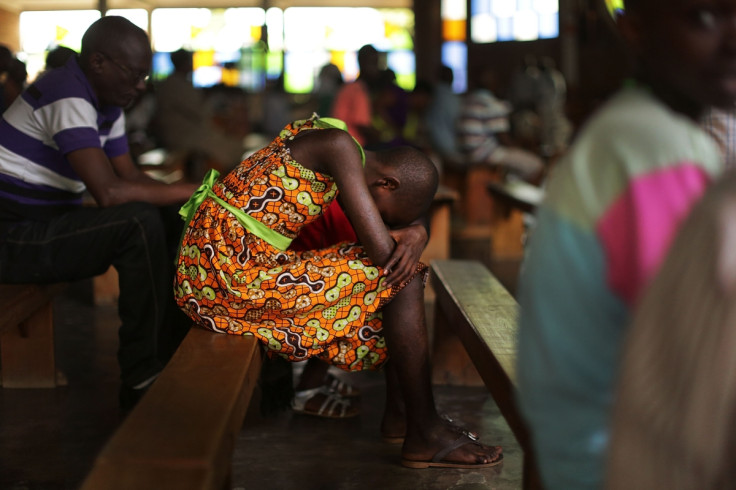Burundi: Government denies reports of rape by policemen in 'dissenting' neighbourhoods

The Burundian government has responded to allegations of rape and sexual violence committed against women in Burundi by armed men, denying recent reports published by IBTimes UK and Radio France Internationale (RFI).
On Monday (4 January 2016), IBTimes UK reported that armed men, including the Burundian National Police (Police Nationale du Burundi – PNB), Imbonerakure – members of the ruling party youth wing – and lawbreakers had raped or sexually assaulted women and girls in so-called "dissenting" neighbourhoods, where protests against President Pierre Nkurunziza's third term have been spreaingd since April of last year.
These reports echoed those of RFI, which a day earlier, also published a number of first hand accounts of sexual violence.
Rape reports: "lies, rumours"
In a statement released by Burundi's Ministère de la Sécurité Publique (Ministry of Public Security), however, minister Gabriel Nizigama denied the existence of sexual crimes in the capital Bujumbura, insisting that calm and tranquillity reigned.
He also dismissed RFI's report, describing it as "fake, inflammatory information" and accused the radio's journalist, Sonia Rolley, of "setting things off" with her account.
"[She] went as far as fabricating false witnesses accusing a policeman of rape in Bujumbura after the 11 December 2015 attacks on a number of military camps," the statement read, before outlining the "police had identified no case of rape in this area and on that date, and was still awaiting a potential claim".
Burundian police spokesman Pierre Nkurikiye repeated the claims in a tweet on 3 January.
#Burundi Sécurité: Viol par 1policier après le 11-12-2015? Aucun cas. Impossible! Témoignes fabriqués! @soniarolley @RFI @willynyamitwe
— NKURIKIYE Pierre (@PierreNkurikiye) January 3, 2016Interior ministry spokesman Therence Ntahiraja also told RFI the reports were "lies, rumours" mounted by the opposition with the aim of demonising Burundian security forces.
While the government said it would "take necessary measures against the disruptive action of the journalist [Rolley]", Willy Nyamitwe, a presidential adviser, also slammed IBTimes UK's report on Twitter, describing it as unbalanced and sympathising with the opposition.
In another tweet, Nyamitwe alleged the opposition was "doing politics under the guise of 'Civil Society'" – referring to the fact that a representative of the civil society had warned rapes may be "part of the repression of the opposition to Nkurunziza's third term".
A number of pro-government users referred to the rape and murder of a 24-year-old woman and Imbonerakure, Jacqueline Hakizimana, in December. They claimed she was killed by opposition supporters, known as Sindumuja – a term used by opponents that translates as 'I am not a slave'.
Jacqueline Violee , yeux et langue arrachés.son crime etre une imbonerakure. @TEDDYMAZINA silencieux? pic.twitter.com/tlaXWEybME
— Landry Sibomana (@landrysibo) January 3, 201610,000 cases of sexual violence
The nation's minister of human rights, Martin Nivyabandi, meanwhile, previously acknowledged that he was aware of an issue of sexual violence but claimed the offences were not linked to the political crisis rocking the country, instead saying they were a societal phenomenon that the government needed and was fighting. Quoting those identified by recognised centres, Nivyabandi highlighted "more than 10,000 cases of gender-based violence" exposed so far in 2015.
Pamella Mubeza, a women's rights activist and director of the Association des Mamans Célibataires (Association of Single Mothers – AMC) in Burundi, told IBTimes UK she believed the figures may be underestimated.
"The numbers are much larger than that because a Burundian woman or girl cannot easily denounce a rape. Indeed, the socio-cultural education [in Burundi] means talking about sexuality is taboo," Mubeza said, adding that the numbers given by the government "are only those identified by recognised centres".
Local journalists have described the use of rape as "a weapon of war", something that Mubeza confirmed.
On Monday (4 January 2016), civil society representatives launched an online campaign to raise awareness about the alleged crimes, and called on social-media users to tweet the hashtag #BurundiStopRape.
© Copyright IBTimes 2025. All rights reserved.






















